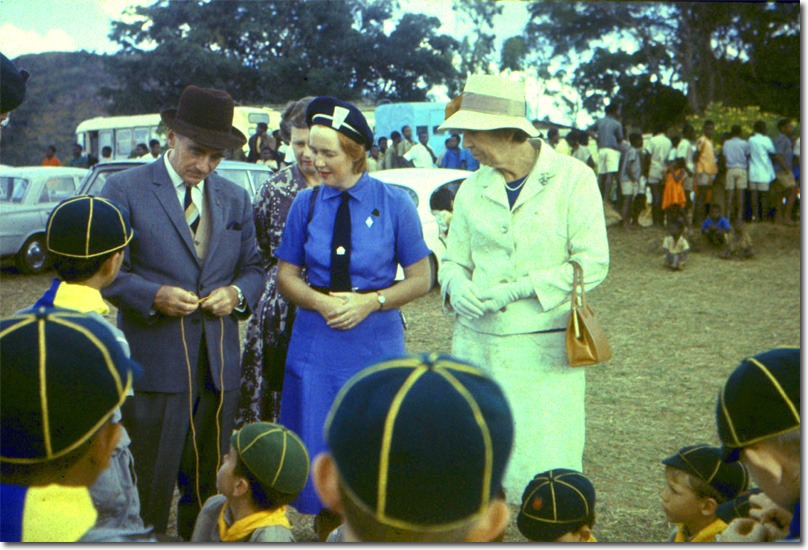|
|


|
|
Sir Glyn Smallwood Jones arrived in Nyasaland in February 1960. While the governor, Sir Robert Armitage, was on leave from August to November 1960 Jones was acting governor. Dr Hastings Banda, the Malawi Congress Party leader, who had been released in April after detention during a state of emergency, exerted pressure on Jones to release the remaining hard-core detainees, warning that he could not prevent major disturbances unless they were released. In exchange for an undertaking--soon broken--that Banda would control them, Jones released the detainees. Two weeks later he was advanced to KCMG.
When Armitage left Nyasaland on retirement on 10 April 1961, Jones became governor. Devoted to the welfare of the Nyasaland people, he was convinced that Banda was the only person able to secure that welfare--a view Banda shared. During the following three years his constant preoccupation was to support Banda, keep him in power and prevent him withdrawing co-operation with the British government. This task involved repeated capitulation to Banda's demands. To do otherwise would, in his judgement, have incurred widespread violence controllable only by external military forces, a prospect not to be contemplated. Given their joint belief in Banda's indispensable role, Jones and Banda developed a working relationship which took the country through self-government and secession from the Central African Federation in 1963 to July 1964 when, as Malawi, it became independent, with Banda as prime minister and Jones, now appointed GCMG, as governor-general. Shortly after independence a ministerial revolt resulted in the dismissal or resignation of all but one of Banda's ministers. Banda asked Jones if his staying on as prime minister was in Malawi's best interests and received an expected, promptly accepted, affirmative answer. Though agreeing with the ministers' objections to Banda's policies and autocratic methods, Jones tried to support him and desperately, but unsuccessfully, to effect a reconciliation. The former ministers fled the country, some with Jones's help--and Banda's agreement--and he long stayed in touch with them, trying to effect their return and a reconciliation. When Malawi became a republic in July 1966 Jones retired to England but did not sever his African ties. He was successively head of the Malawi Buying and Trade Agency in London, adviser to the Lesotho government, deputy chairman of the Pearce commission on Rhodesian opinion (appointed to assess African opinion on the proposed constitutional settlement drafted by Sir Alec Douglas-Home and Ian Smith), observer at the Rhodesia-Zimbabwe elections in 1980, and chairman of numerous African charities, including the Friends of Malawi Association and the Zimbabwe Trust. He died of liver failure at his home, Little Brandfold, Goudhurst, Kent, on 10 June 1992. He was cremated and his ashes were taken to Malawi and placed next to the remains of his son, who had died in 1961, in Zomba cemetery. |
Nyasaland | Nyasaland Administrators
Armed Forces | Art and Culture | Articles | Biographies | Colonies | Discussion | Glossary | Home | Library | Links | Map Room | Sources and Media | Science and Technology | Search | Student Zone | Timelines | TV & Film | Wargames